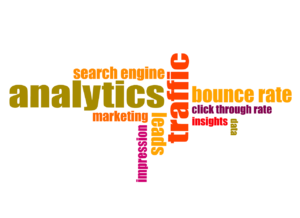A marketing strategy is especially important if you want to capitalize on the greatest ROI trends for 2024: short-form video and social media. To achieve effective outcomes, your plan must carefully incorporate both rising trends and tried-and-true tactics.
Marketing plan VS strategy
A marketing strategy and a marketing plan are essential components of every business’s marketing activities. The marketing strategy serves as the core structure, guided by the company’s mission, vision, and long-term goals. It identifies the target market, develops a distinctive value offer, and determines competitive positioning. The strategy takes into account the market environment, client behavior, and the company’s strengths and limitations, giving a consistent basis for decision-making.
In contrast, the marketing plan turns the strategy’s objectives into actual actions such as campaigns, activities, timetables, budgets, and success measurements. It’s a flexible, thorough roadmap that may be modified based on market conditions or corporate performance.
Both components are critical: the strategy provides direction, while the plan explains the route. A well-defined strategy provides purpose to the plan, and a well-executed plan achieves the strategy’s goals.
How to define goals for your strategy that correspond with overarching business objectives
It is important for business success and efficiency that your strategy goals are in line with your entire business objectives. Here’s the best way to get this alignment:
Understand the corporate vision and objectives: This information is often provided by top management and acts as a foundation for all departmental strategies.
Conduct a SWOT analysis. Analyze the company’s strengths, weaknesses, opportunities, and threats to see how internal competencies and external opportunities might be aligned with corporate goals.
Set SMART goals: Make sure the goals you set are specific, quantifiable, attainable, relevant, and time limited. Each aim should clearly support the overall business objectives in a practical way.
Monitor progress. Establish key performance indicators (KPIs) that directly represent success in terms of the business’s primary objectives and regularly monitor progress towards your goals.
7 steps to creating a winning marketing strategy

Define your business goals.
Set SMART (specific, measurable, attainable, relevant, and time-bound) goals. For example, by streamlining the supply chain and using lean manufacturing concepts, you can cut operating expenses by 10% in a single fiscal year. This technique guarantees that your goals are clear and attainable.
Conduct marketing research.
Gather information about your industry, rivals, and potential clients. Understand their requirements, preferences, and behaviours. This research informs your strategy and helps you improve your marketing efforts. For example, the United States leads in market research spending ($48 billion), emphasizing the importance of knowing market dynamics.
Identify your target audience.
Based on your research, determine which target segments are most likely to acquire your product or service. Understand their demographics, psychographics, and purchasing habits. Spotify, for example, targets music enthusiasts with individualized playlists, whereas Sephora employs augmented reality apps to reach out to tech-savvy millennials.
Determine your unique selling proposition (USP).
Identify what distinguishes your offering from competitors. Your USP should fill a market gap or provide a distinctive value. Apple, for example, provides a seamless user experience with its ecosystem of interconnected gadgets, whereas Zappos‘ USP is its exceptional customer service, which includes a 365-day return policy and 24/7 support.
Develop your marketing mix.
Use the 4 Ps—Product, Price, Place, and Promotion—to suit your target audience’s needs and achieve your business objectives. This blend should be adaptive to market fluctuations. As Seth Godin puts it: “The right product, in the right place, at the right time, at the right price.”
Set a Budget
Determine your marketing budget depending on the importance of marketing to your business’s goals and financial limits. Allocate a percentage of predicted revenue to marketing, making sure it does not threaten other operations.
Identify your marketing goals and metrics.
Set clear, quantifiable goals like market share, sales growth, and customer acquisition. Choose key performance indicators (KPIs) to measure success. John Doerr, writer of “Measure What Matters,” underlines the significance of KPIs: “What gets measured gets managed.”
Develop an action plan.
Choose the methods and channels to reach your marketing objectives, such as content marketing, digital marketing, traditional advertising, and public relations. Explore partnership marketing to broaden your brand’s reach by cooperating with other businesses.
Monitor performance.
Carry out your marketing initiatives while regularly monitoring performance against your KPIs. Utilize data analytics technologies to gain insights into what works and what doesn’t. The AIDA model (attention, interest, desire, and action) is a tried-and-true framework for optimizing marketing efforts. Be ready to pivot based on fresh data, market developments, and consumer feedback to keep your plan dynamic and effective.
How AI tools fit into your marketing strategies?
AI solutions are currently indispensable in marketing because of their data analysis, personalization, and operational optimization capabilities. Here’s how they work into strategies:
Customer Insights and Personalization: AI can swiftly evaluate consumer behavior and huge data, enabling hyper-personalized marketing such as tailored emails and targeted adverts.
Automated Customer Interactions: AI-driven chatbots and automated assistants handle customer inquiries 24 hours a day, seven days a week, increasing customer happiness while freeing up human resources for difficult challenges.
Predictive Analytics: AI forecasts trends and customer behaviors by studying prior data and external factors, which helps with inventory management, demand forecasting, and promotional methods.
Content Generation: AI helps with content production, from authoring articles to creating ad copy, saving time and effort while keeping consistency across platforms.
Optimization of Marketing Campaigns: AI watches marketing effectiveness and suggests or automating adjustments to optimize ROI.
Which team contributors should be involved in developing your strategy?
When developing your strategy, it is critical to incorporate a varied variety of team stakeholders to provide thorough input and dedication. Top management or leadership are often involved as key stakeholders in providing vision, direction, and resources. Other parties involved include the following.
- Finance for budgeting
- Human Resources for Staff Needs
- Operations for practicality.
- Sales and marketing for market insights.
- IT for technical support.
- Customer Service for User Feedback
Conclusion
Developing a comprehensive marketing plan in 2024 entails identifying essential business objectives, harnessing cutting-edge trends such as short-form video and social media, and ensuring that all efforts are consistent with your company’s mission and vision. By following the steps mentioned below—from creating SMART goals to adding AI technologies and assembling a diverse team—you can create a strong strategy that not only defines clear targets but also gives a flexible method for accomplishing them. Regularly evaluating performance against specified KPIs ensures that your marketing activities remain dynamic and successful, allowing you to adjust to market changes and achieve continuous success.
GET IN TOUCH
Get in touch with us to help you improve your 2024 marketing plan with expert advice and advanced technologies that maximize ROI.






